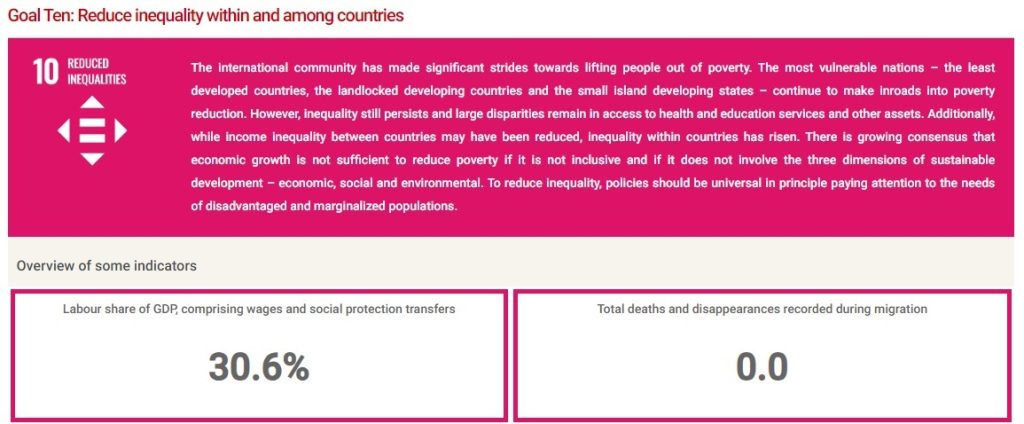SDG 10 - Reduced Inequalities
Gulf University is dedicated to supporting the Kingdom’s efforts to achieve SDG 10: Reduced Inequality. By providing equal opportunities for all, the university is working to bridge the gap in education, employment, and social participation. Through scholarships, diversity and inclusion programs, such as collaborations with disability and deaf societies, and community outreach initiatives, university promotes access and success for all groups, including first-generation students, students from developing or underdeveloped countries, and students with disabilities.
GU empowers individuals from all backgrounds to reach their full potential and contribute to a more equitable society.
Since the inception of GU, it recognizes the importance of diversity and inclusion in creating a cohesive and supportive learning environment for all students, staff, and faculty.
To support the success lifelong learning of the students, staff, and faculty. GU has implemented several measures against discrimination, including a policy on Antislavery, Equality Diversity and Inclusion Policy.
GU also provides mentoring, counseling, and peer support to students, staff, and faculty without discrimination. The university has implemented a disability policy to provide support services to students with disabilities. Recognizing that reducing inequalities is an ongoing process, GU is committed to continually evaluating and improving its policies and practices to create a more diverse and inclusive campus community.
The Bahraini government has made significant development in promoting peaceful coexistence, youth empowerment, and support for people with disabilities. The King Hamad Global Center for Interfaith Dialogue and Peaceful Coexistence fosters religious tolerance and understanding. The Ministry of Youth Affairs empowers youth through various programs, such as Youth City 2030 and the Bahrain Women’s Leadership Program. Additionally, the government has implemented the Child Law and the National Strategy for People with Disabilities to protect the rights and well-being of vulnerable groups. These initiatives demonstrate Bahrain’s commitment to creating an inclusive and equitable society.
Peaceful Coexistence
The King Hamad Global Center for Interfaith Dialogue and Peaceful Coexistence is a key example of how Bahrain works towards eliminating forms of discrimination. The Center, through the doctrine of the Kingdom of Bahrain Declaration, supports the various religious freedoms that are guaranteed to citizens and residents.
Youth Empowerment
The Kingdom empowers youth through programs, for example, the Ministry of Youth Affairs’ 11th edition of Youth City 2030, held in collaboration with the Tamkeen, offered 2,400 training opportunities aimed to prepare the youth for the labour market and assist them in unlocking their talent potential. The Ministry also launched the Bahrain Women’s Leadership Program which targets women aged between 15 and 18. The program is composed of a series of workshops led by experts in leadership principles aiming to develop that skill set in young ladies. Bahrain has promulgated the Child Law, which protects all the rights of the children guaranteed by the Constitution, such as the rights to education, good healthcare, recreation, family custody and many aspects of life.
Support for People with Disabilities
The Ministry of Social Development developed the National Strategy for People with Disabilities (2023-2027), which was endorsed by Cabinet. The strategy will focus on developing the relevant legislative frameworks, promoting a collaborative approach to monitor the rights of people with disabilities, ensuring access to adequate health, education, and other services, promoting buildings accessibility, and increasing access to the labour market. Ongoing support available to people with disabilities includes the integration of disability data into the identity card, providing access to discounts and additional services.
Bahrain efforts for SDG 10

Last Updated on January 15, 2026 @ 09:20:14 am

